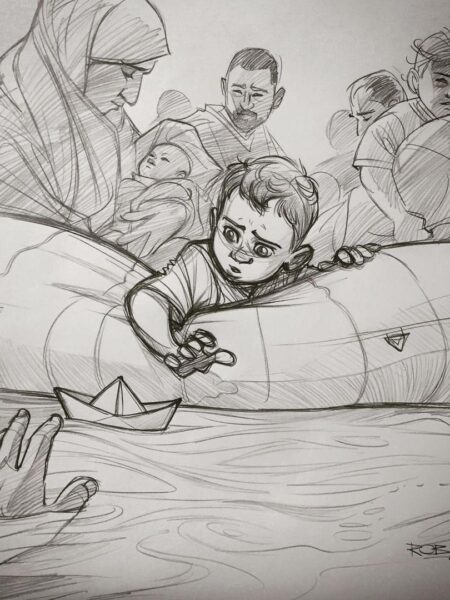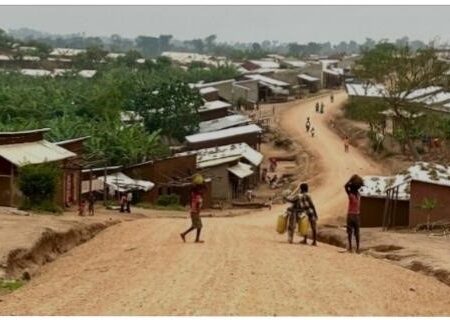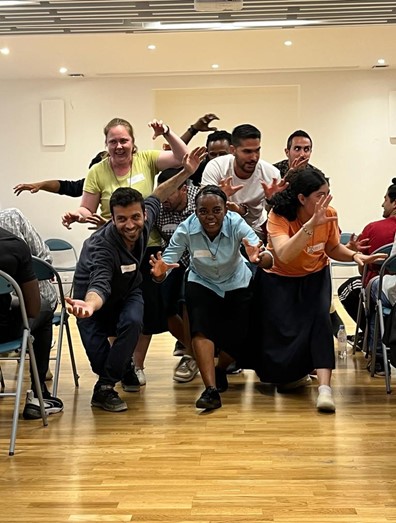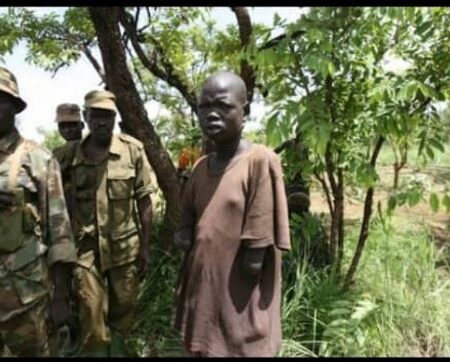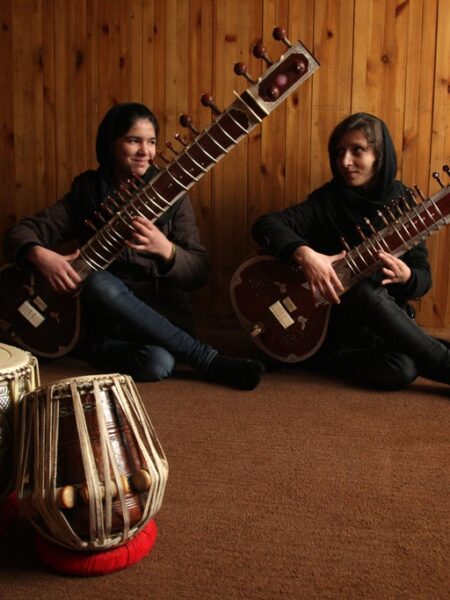Abstract
Migration is the term used to describe when people move from one place to another for social, economic, political, or natural causes. Illegal migration has been a vital aspect of business in Central Asia, particularly Afghanistan. One of the primary causes of migration mobility, as observed in the nations with the highest immigrant populations worldwide, is internal turmoil, war, and a poor economy, where; Afghanistan continues to be the nation that generates many immigrants worldwide as a result of these ongoing conflicts. However, the wrong perception and information from the surroundings, friends and social media about Western countries in Afghanistan is another factor that leads people, particularly youths to migrate. Where they are not aware of and expect the dangers of their journey. The primary objective of this paper is to examine the perceptions and information of Western countries among youths through illegal migration in Afghanistan and to understand the actual situation of those who have already migrated to Western countries through illegal migration. Studying these perceptions about Western countries that lead to illegal migration intentions is essential to understanding the migration decision, process, problems and predicting future migration flows in Afghanistan.
Literature Review
Afghanistan has been the nation with the highest influx of immigrants for many years due to political unrest, deteriorating security, and financial difficulties (Roohullah & Ismet, 2022). These Afghan migrants have faced several problems being a newcomer in a new country. The very first challenge these Afghan migrants face abroad is their access to the basic needs of life. They struggle with issues like language barriers, cultural differences, housing affordability, work, health, and education as newly arrived immigrants. Including obtaining housing, paying rent, and enduring the wintertime cold and humidity. The Afghan immigrants questioned in Turkey had worked or are still working in the unregulated industry under difficult circumstances, putting in long hours and frequently earning less money than other workers (Roohullah & Ismet, 2022).
According to a new Human Rights Watch (HRW) report, ‘No One Asked Me Why I Left Afghanistan,’ there has been a massive increase in the number of deportations of Afghan citizens. The spike is partially due to what it terms a “tidal shift in Turkish public opinion against refugees and immigrants,” citing a poll performed last year in Turkey in which 76% of people stated “the entry of these people into Turkey must be prevented and they must be deported urgently” (Info Migrants, 2020).
Afghans are frequently pushed back over the border without any chance of being able to request for asylum, which is against the UN’s 1951 Refugee Convention. Afghans are deported from Turkey in ever-increasing numbers, and pushbacks are unlawful (HRW, 2020).
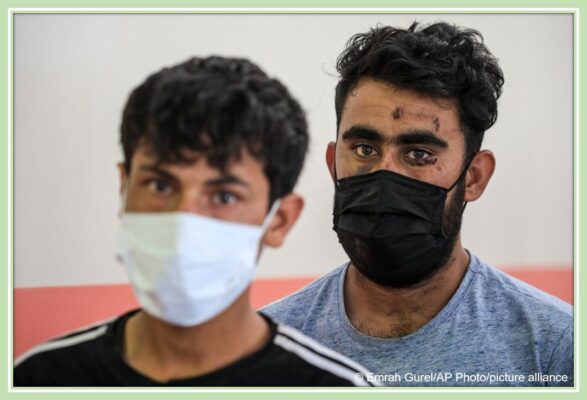
“Because it was winter and cold, people were dressed warmly, so the Turkish police took our warm clothes, mobile phones, bags, and shoelaces.” They never returned anything. No one was allowed to speak with them; we begged them to listen to us since our country was in trouble, but they didn’t. We were forced right back into Iran. We were never brought to a camp” (Zayan, a 28-year-old former soldier in the Afghan army, interviewed for the HRW report).
Border police frequently steal or destroy personal property, including phones, cash, identity documents, and other items, and frequently treat children and adults in ways that are overtly racist. In addition, at routine border crossings, Croatian police do not turn over anyone to Bosnia and Herzegovina’s authorities. Instead, they move them to locations close to the border and give them the go-ahead to cross. Then, frequently at night, migrants are compelled to go through rivers or thick forest regions (VPBR, info migrants 2020).
Every year hundreds of Afghan migrants die and are missing during the illegal migrating process. Yet there is a lack of proper policies by the European governments to protect the rights of these Afghan migrants (Migrants, News 2020).
The deaths of three Afghan refugees in a car fire in Iran and another four were injured, including a boy seen begging, “Give me some water, I am burning”. in the video of the incident, 6 June 2020. In addition, 45 migrant workers were killed when Iran border guards forced them at gunpoint into a river. Afghan migrants drowned after being tortured and pushed into a river by Iranian border guards on 3 May 2020 (BBC, 2020).
Research Methodology
I conducted interviews with ten young Afghans from two groups for my research. I spent over 2 hours interviewing them using video and audio recordings. There were two groups: one comprised of young people who were planning to migrate, and the other consisted of those who had already done so. I created two sets of questions, each with five questions, to ask both groups. The questions focused on their perceptions and knowledge of Western countries and their expectations and experiences of living in those countries. I used a thematic approach to analyze and organize the interview findings for my final project.
Sources Information
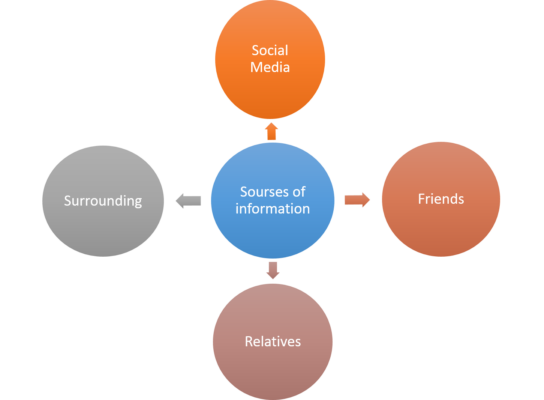
Let us explore where young people get their information about Western countries. During our interviews, we asked participants about their knowledge of Western countries and the sources they used to gather this information. Based on their responses, we identified the following themes as sources of information:
Most respondents agreed that social media is their primary source of information about Western countries.
Samiullah Shinwari who have migrated to France, said:
“Well, I used to watch TikTok videos and Instagram pictures of my friends who live in France, and I used to think that France was where I could achieve my dreams.” Furthermore, I saw the Eiffel Tower via movies and the internet, and it appeared to be a fascinating destination. I frequently watch Tiktok viral videos of young Western guys and girls, Facebook and Instagram pictures of old, beautiful, and modern Western cities, and various television serials and TV dramas from Western nations depicting diverse cultures.”
The second source of information was the interviewee’s friends from school, university, and surrounding areas, as well as those who have already migrated. However, the information shared among them could have needed to be completed and based solely on their thoughts and ideas, which may not be entirely true or accurate.
“My friend Ahmad is in Belgium and we usually talk with each other through WhatsApp, I have been told that Western countries are the only place where I can get to all of my dreams and do whatever I want”. (Hameed, Kabul, Afghanistan)
Some respondents argued that they receive information about Western countries from their relatives who reside there. These relatives typically provide them with details about life, education, employment, and other social activities in Western countries.
“It’s my last year in school, and my cousin waheed is in Germany; I usually ask him about getting admission for my bachelor’s in Germany, and he always tells me that getting a visa is difficult; he says you can come through illegal routes.” waheed also claims that “life is far too easy and comfortable here.” (Mazeed Khan, Kabul, Afghanistan).
Most respondents argued that information from strange people on the streets, city buses, city parks, restaurants, café, and other places is another source of information.
Gullhaidar Haqyar is a student at Medical College in Kabul, and he plans to go to Germany; he told me about his sources of information about Western countries:
“It’s a current trend in Afghanistan that everyone is talking about the West; whether you’re in a bus, taxi, restaurant, or park, everyone is talking about one of their family members, relatives, or friends who live in the West.” These unusual folks discuss how people they know or relatives arrived in Europe, what they do, and how they live.”
Perceptions versus Realities
1. Safe Journey versus Extreme Risks
Afghan youths are more interested in travel; the respondents believed that they would enjoy their journey and life and have the opportunity to see new places in Western countries because they think the journey is safe and easy.
“I am interested in exploring new places, I will go through 8 or 9 countries of Europe, and it will be so fun. I will see new places, meet new people, and discover a lot. A friend of mine Ali, is in the United Kingdom and said: “it’s straightforward to come to Europe, and he said you will see different countries during your trip here”. Jahanzeeb Khan, Kabul, Afghanistan
I spoke with several individuals who shared distressing accounts, especially when discussing their hardships. I asked them to share their experiences of visiting Western countries.
During our conversation, Samiullah Shinwari recounted his experience of migrating to France.
“I used to think traveling to France would be easy and enjoyable. I would take pictures of famous landmarks in each country I visited, make new acquaintances, try out new cuisines, and stay at luxurious hotels. Additionally, upon my arrival in France, I was expecting to be granted citizenship and the right to work. Unfortunately, my experience was quite different. We were treated inhumanely during the journey as if we were animals. There were 20 people squeezed into a car only meant for 5 or 6 individuals. We were transported to another country in refrigerated trucks for 6 to 10 hours. Furthermore, we endured treks lasting 10 to 16 days on foot, with insufficient sustenance and hydration, consuming contaminated water, foraging for raw fruit in the forests, and consuming deer carcasses due to our dire hunger. In addition, we spent the entire time sleeping in the woods with no shelter using Snugpak.”
Most of the respondents complained about the risky routes of illegal migration and the cruelty of border police, they mentioned that the border police of Iran, Turkey and Greece are so cruel and don’t care about humans.
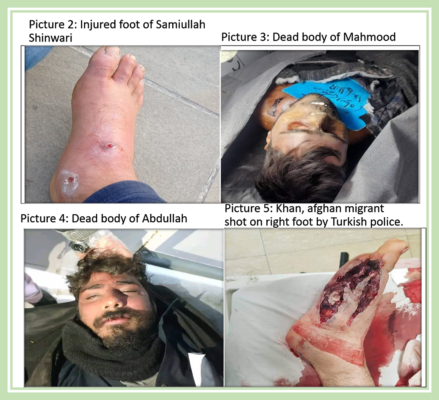
Hameed and Javid are two migrants in Turkey; while talking to them about how they crossed the border, they told me their two friends, Abdullah and Mahmood, lost their lives in Iran when they wanted to cross the border illegally. They said Iranian border police shot Mahmood and Abdullah.
Khan previously worked in the government sector, but his salary was not sufficient to fulfill his desires. Consequently, he decided to travel to Europe. During our conversation with him, I inquired about his journey.
“The border police in Turkey are also ruthless, showing no mercy to Afghan migrants. When I tried to cross the border from Iran to Turkey, Turkish police shot with a sniper on my right foot.”
2. Freedom versus Legal Issues & Mental Problems
A significant number of young people from Afghanistan view Western countries as representing freedom. They often feel restricted by the expectations of their families and believe that the only way to break free from these limitations is by relocating to the West.
One of the respondents Abdul Basit, who is planning to migrate stated that; strict cultural norms and roles in Afghanistan limit the opportunities for young people like him. According to him, leaving the house without permission is not allowed. As a result, he has to obtain permission and inform a family member before leaving. He hopes that in Western nations, he will have the freedom to do whatever he wants, such as attending parties with friends, choosing his own bride, and leaving the house without seeking permission or worrying about when he will return.
According to Gullhaidar Haqyar; being a young person in Afghan society means having numerous responsibilities. We are expected to take care of our household chores, pursue our studies (although some young’s aren’t given the opportunity to do so, he said) and follow our parents’ guidelines while avoiding forbidden actions. To gain some independence and escape these limitations, he compelled to travel to Western countries.
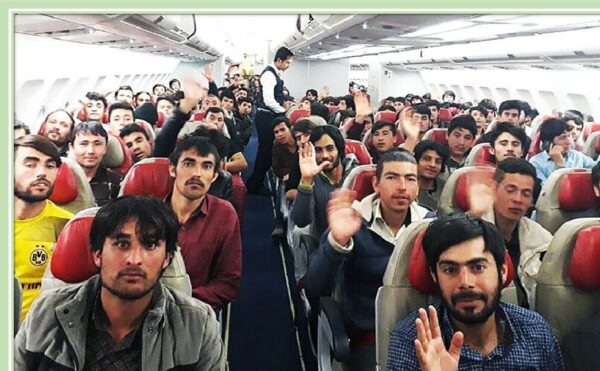
In Western countries, the second stage of challenges for migrants involves legal concerns. These individuals have expressed fear of deportation or rejection upon arrival after enduring a long and challenging journey. As a result, many have waited years to be interviewed by migration or refugee offices. Unfortunately, some have been deported or received a negative response from the migration office, while others have been refused entry altogether.
Samiullah Shinwari said: “It’s hard to obtain the necessary documents (green card, citizen card, or passport) once you have arrived in Europe. Additionally, it takes at least two to four years to obtain a work permit and five to ten years to obtain a visa for travel to your home country. There is a higher likelihood that the nation to which you intend to immigrate will not accept you.”
Many young migrants find it difficult to adjust to new situations. It’s like being a bird freed from its cage but not knowing what to do next. Afghanistan was a difficult place for them, with many challenges to overcome. However, they have found that the outside world also has its challenges. They used to rely on their families to help them through difficult times, but now they feel they have no one to turn to for advice or support. These emotional, social, and work-related problems have made things harder for these young people. They are struggling with sadness, anxiety, and other health issues.
Atif Khan, who has moved to Belgium, has shared his experiences with mental health challenges. He feels isolated due to his busy work schedule, leaving him little time to rest and sleep. Consequently, he struggles to engage with others and understand their perspectives, often experiencing unexplained irritability.
3. Better Employment versus Tough Working Condition
A lot of young Afghans who choose to migrate to Western countries think that they will have better job opportunities there. They believe they can find work and support themselves and their families in Afghanistan.
Abdul Basit shared his personal experience with me during our conversation:
“Families are large in Afghan society, and whoever is the oldest or has a source of money will support their family. As a result, they must work and suffer day and night to provide for their family. But there are fewer and fewer jobs available in Afghanistan, and it’s challenging to locate one that can support a single family’s requirements. I thought I would quickly find suitable work when I go to a Western country, with more options for future employment, greater pay, and higher-quality positions”.
According to most respondents who migrated, they found the working conditions to be unacceptable and felt exhausted. Atif Khan shared his personal experience with these working conditions.

“Employees are experiencing longer working hours, reduced break times, fewer vacation days, and lower wages. Young immigrants with difficulty communicating in European languages often face challenging job opportunities, such as hotel cleaning, restaurant dishwashing, clothing stitching, agricultural labor, and other tasks. I work two shifts six days a week, with a 16-hour shift per day. I have only an 8-hour break during the day, during which I spend 30 minutes commuting and the remaining 7.5 hours resting and sleeping.”(Atif Khan)
4. Education versus Language Difficulties
During my conversations with Afghan migrants, many expressed disappointment with the education system in Afghanistan. They feel that studying in Western countries would provide them with better opportunities.
Jahanzeb Khan is a young Afghan student currently residing in Kabul, Afghanistan. He has intentions to migrate and is currently enrolled in the ACCA course.
“I was completing the third paper of the ACCA course when I realized I couldn’t take the exams in Afghanistan. This means I need to travel to Europe to finish my education. Education is a basic human right, essential in today’s rapid technological advancement. Unfortunately, the educational system in Afghanistan is not as advanced and is more traditional. It would be better to move to a Western country for several reasons. Firstly, there needs to be a co-educational system. Secondly, there is a lack of useful facilities, and thirdly, there is a shortage of specialized professors in Afghan schools, colleges, and other institutions.”
Many migrated respondents needed help reading or writing and faced numerous challenges in learning a new language.
Atif Khan says being a new migrant in a foreign country can feel like being a newborn baby. You may need help speaking, understanding, and writing in the new language. Even if you are proficient in English or your native language, it may not be enough as you have to learn a new language. It typically takes three years to grasp the basics and overcome common challenges”.
Conclusion
Various factors contribute to the migration of people from Afghanistan, including social, political, and economic reasons. However, inadequate information from their surroundings, friends, and social media about Western countries also plays a role. This can lead young people to migrate with unrealistic expectations, unaware of the challenges they may face during their journey and after arriving in the West. Young Afghan migrants encounter numerous challenges in Western countries. These challenges arise upon their arrival and journey to the Western world. Despite the perceived safety and simplicity of the trip, migrating respondents expressed excitement about exploring new places and opportunities in the Western world. However, upon questioning, these youths recounted the difficulties they faced throughout their journey and arrival in Western countries.
Many young Afghan migrants view Western countries as symbols of freedom and believe that relocating there is their only means of escape from the constraints they face in Afghanistan. However, legal challenges pose a significant problem for these young people upon arriving in Western countries and adjusting to new circumstances can be complex. Additionally, many migrating youths believe that they will quickly find work and be able to support themselves and their families in Afghanistan once they arrive in the West. Unfortunately, the majority of migrants report deplorable working conditions and exhaustion. Lastly, many migrants believe studying in Western nations will provide them more opportunities. However, since many people who move to new locations require assistance with reading and writing, learning a new language and education, in general, can take time and effort.
References
- Roohullah & Ismet, 2022. Reasons for Afghan Immigrants to Come to Turkey and the Problems They Experience.
- Abbasi, Khadija, and Alessandro Monsutti. 2017. “Title.” Becoming Adult Working Paper Series, London.
- Migrants news, The deaths of three Afghan refugees in a car fire in Iran. (2020 (https://www-bbc-com.cdn.ampproject.org/v/s/www.bbc.com/news/world-asia-52949429).
- BBC NEWS, 45 migrant workers were killed when the border guards forced them at gunpoint into a river. (https://www.bbc.com/news/world-asia-52523048).
- Info Migrant, https://www.infomigrants.net/en/post/44823/afghan-migrants-beaten-and-illegally-expelled-by-turkish-authorities.
- HRW, https://www.infomigrants.net/en/tag/human%20rights%20watch/.
- violently push back refugees, https://www.infomigrants.net/en/post/48658/hrw-croatian-police-violently-push-back-refugees.
- Francesca Meloni, 2019. The limits of freedom: Migration as a space of freedom and loneliness among Afghan unaccompanied migrant youth.


